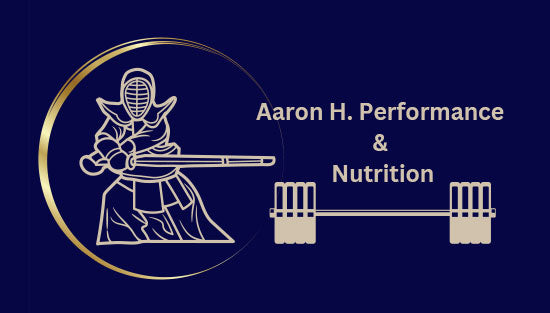Fatigue Management: The Key to Sustainable Gains and Performance
Training hard is necessary for growth, strength, and skill development, but fatigue is an inevitable byproduct. If you don’t manage fatigue properly, it can and will sabotage your performance and limit your progress.
What is Fatigue?
Fatigue happens at multiple levels, and not all of it is the same:
• Immediate Fatigue – The kind you feel right after a tough set of squats, leaving you breathless. This usually resolves within a few minutes.
• Workout Fatigue – The exhaustion that sets in after an entire session. Typically, you recover from this within a day or two.
• Cumulative Fatigue – The one to pay attention to. This is fatigue that builds up over days, weeks, and months and doesn’t fully recover day-to-day. If ignored, it can and will significantly lower your performance and slow down progress.
The issue isn’t just feeling tired. It’s that fatigue interferes with your body’s ability to adapt, learn, and perform at biochemical levels. I don’t quite mean reading and learning from a book… it also affects the nervous system’s ability to create and automate motor patterns. If you’re too exhausted, your ability to learn new movements or improve technique suffers. If the body's energy systems aren’t replenished from the training before a test or Taikai, your performance will certainly be worse than it could have been. If you’re so tired that your nervous system can’t maximize the impulse to drive you forward through your left leg, your attacking distance is shortened.
Fatigue Limits Your Gains
Consider this:
Let’s say your most growth-promoting squat set is 10 reps with 200 lbs.
But because of accumulated fatigue, you can only lift 190 lbs for 10 reps.
Still muscle growth-promoting? Sure, but not as much as it could have been.
Then, after several weeks, you’re only hitting 170 lbs for 10 reps.
At some point, your fatigue is so high that your training isn’t even stimulating progress anymore.
When fatigue forces you to train below your optimal capacity, you’re not making gains you think you should be making.
A common mistake from past clients and people I talk with is ignoring planned deloads (fatigue-reduction weeks). You might push through using caffeine, motivation, or music, but over time, your body pays the price. Fatigue acts on biochemical pathways, reducing your ability to build muscle and recover effectively. Eventually, training breaks down more muscle than it rebuilds.
A strength coach has all of your long-term goals in mind and progressive plans for the next 1-2 years! Fatigue management is such a crucial piece of turning you into a completely different human being at the end of our time together.
So, how to manage fatigue for long-term progress?
Some just straight up need to train less, but others just need to structure their training wisely. Here are some ways to manage fatigue while maximizing gains:
Train Smarter, Not Just Harder
• Use high-stimulus, low-fatigue exercises.
• Example: If using a leg press for quad growth, experiment with foot positioning to feel the burn in your quads while minimizing knee stress.
• If an exercise feels overly exhausting without delivering a great muscle pump, it might be needlessly fatiguing. Another relatable example might be choosing the deadlift to grow hamstrings. But the deadlift for this person makes them feel annihilated; they’re not getting the leg growth they want, and their back takes all week to recover, affecting other exercises on other training days. Given the stiff- leg deadlift variation, they feel it in their hamstrings, their training goals are being met, and they don’t feel too tired that other training days or exercises suffer.
Reduce Unnecessary Fatigue
• If you’re adding extra training sessions (e.g., long runs, martial arts, extra lifting unplanned exercises) without a clear purpose, you might be hurting your primary goal.
Know that stress and your lifestyle are adding to cumulative fatigue. Really consider taking the time to do things that relax you or that are fun to do.
Plan Recovery into Your Training
You don’t have to stop training to manage fatigue. You just need to cycle intensity and volume strategically. Here are a few methods to consider:
Days Off – Taking at least one full rest day per week, if not 2.
Recovery Sessions – Instead of going all-out, do a “half-intensity” workout (50% of usual weight, reps, and effort).
Recovery Half-Weeks – The first half of the week is recovery sessions, then you ramp back up.
Deload Weeks – A full week of reduced training intensity to reset fatigue levels.
Active Rest Phases (1-2 Months) – Essential for long-term lifters and athletes.
• Training is fun, low-stress, and non-specific to your sport.
• You maintain strength and size with minimal effort.
• Focus shifts to mental recovery, outdoor activities, and spending time with family.
If your goal is muscle growth, strength, skill development, or that taikai coming up, it’s imperative to manage fatigue just as carefully as you plan your workouts.
• Push hard when it counts, but allow recovery when needed.
• Don’t chase exhaustion—chase progress.
• Train strategically so you can keep improving for months and years, not just weeks.
Mastering fatigue management isn’t about doing less, it’s about training smarter so you can do more over the long run.

